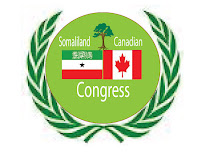
Ibrahim Mead
Political analyst
Ottawa, Canada
I haven’t finished (you) off Somaliland yet, so I need extensions!
I haven’t finished the job! To finish Somaliland that is, so I need extensions!
In translation that is what Riyaale is saying to the people of Somaliland who paid blood and treasure for Somaliland! People don’t seem to understand that or they are in a delusional state of mind!
With out questioning the intent, the judgement, integrity, honesty or their level of understanding the seriousness of the issue in question, the self appointed group of Somalilanders said, “they want to mediate between Riyaale and the opposition! The question is: Mediate what?
Mediate between wrong and right? Between evil and good? How would any body mediate that? That shows we did not get it! I think this is an exercise in futility!
In my opinion, evil must not be condoned but must be confronted and defeated. On the other hand good must be supported and condoned
. The opposition party missed the point by accepting to meet Riyaale whom they said he is not president any more. To meet him in a place he lives by force under (president) a title he holds trans-constitutionally is another mistake! They were supposed to meet the guy in a neutral place as a candidate of a party with full understanding that they are meeting an evil! They missed the whole point there!
Evil and good run in a parallel universe. Mediating between the two different worlds is mockery and mind-boggling exercise! Mediating between some one who wants more time as to finish off Somaliland and others saying NO., Let us salvage what is left of Somaliland is like mediating between wrong and right and between evil and good, and that is absurd and beyond the logic!
Riyaale is not a Somaliland believer! He has no emotional bond with Somaliland.
Even though he was made president he chose not to be a believer with out him saying that he doesn’t! His actions, inactions and reactions show that clearly!
Riyaale has no moral authority to run Somaliland any more! He never had one ever!
Riyaale has no legal authority to call him self-president of Somaliland any more! . His term of office has expired over a year ago! Now he is in the midst of criminal activity creating clan wars! Re: what is happening between Borama and Gabiley Regions!
Riyaale and his Moneyman must be treated as war instigators, with past crimes, thus dealt as such.
In a simple translation, what Riyaale is saying is this: “ I need even more (time) extensions to complete the job! That is to finish off Somaliland!” surprise? But that is what he is precisely doing, and that was what he did during his term in office!
The “calf worshipers”-the Guurti, the cabals, the clan traders, the hoodlums and the goons bowed and said, “sure”! But they don’t know the consequences of their actions!
He damaged the national psyche!
He demeaned the national prestige and integrity!
He disgraced the national institutions one after the other!
He created, otherwise enhanced a culture of corruption, unseen in anywhere!
He redirected the moral campus of Somaliland to the wrong direction!
He confused the honest people who “wrongly” trusted him with lies and hypocrisy!
The first requirement for a (Muslim) believer to perform his or her prayers is ‘intent’ (Niya) first and foremost to pray for Allah and Allah alone. The rest is a process…
In Somaliland a none believer leads the believers in their prayers, and that is Riyaale!
Riyaale and crew crippled each and every national institution with no exception – the presidency included!
They turned the national institutions in to a moral less agencies that serve Riyaale and crew! The said institutions no more serve the people! They even cause them harm in more ways than we think, like the police used to beat, subjugate or shoot the citizens and the national leaders of Somaliland!
The national institutions are either left out for dead, like the House of Representatives or work for the corrupted crew running Somaliland wrong like the judiciary and the Guurti!
The chairman of the House of Representatives is a Riyaale helper against the nation in a way attributed to his weakness, gutlessness and ignorance of the job entrusted upon him! He may not know that he does that job for Riyaale! He may not realize that, but he does indeed! However he doesn’t mean it! But it doesn’t make a difference!
If the chairman knows his job he would have saved the country from Riyaale and gang, but unfortunately he doesn’t! The question is why is he there then?
The author is not talking the Guurti side, because they are an illegitimate body for (bribery) money!
Although surprises are not short in Somaliland these days, I was wondering what the second self hired so-called mediating group are mediating? Are they mediating between the good and the evil, between the wrong and the right or what?
I think the right course for any conscionable person or persons to go is not to entertain the evil represented by Riyaale but to support the good Represented by the people represented here by the opposition and the moral sectors of the nation!
The right course is to confront and defeat the evil and support the good and save the country. There is no neutrality in this. Only hypocrites play that role!
However peace
Ibrahim Mead

